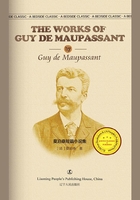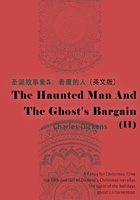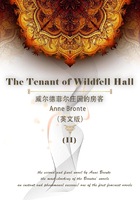If Arthur Clennam had not arrived at that wise decision firmly to restrain himself from loving Pet, he would have lived on in a state of much perplexity, involving difficult struggles with his own heart. Not the least of these would have been a contention, always waging within it, between a tendency to dislike Mr Henry Gowan, if not to regard him with positive repugnance, and a whisper that the inclination was unworthy. A generous nature is not prone to strong aversions, and is slow to admit them even dispassionately; but when it finds ill-will gaining upon it, and can discern between-whiles that its origin is not dispassionate, such a nature becomes distressed.
Therefore Mr Henry Gowan would have clouded Clennam's mind, and would have been far oftener present to it than more agreeable persons and subjects but for the great prudence of his decision aforesaid. As it was, Mr Gowan seemed transferred to Daniel Doyce's mind; at all events, it so happened that it usually fell to Mr Doyce's turn, rather than to Clennam's, to speak of him in the friendly conversations they held together. These were of frequent occurrence now; as the two partners shared a portion of a roomy house in one of the grave old-fashioned City streets, lying not far from the Bank of England, by London Wall.
Mr Doyce had been to Twickenham to pass the day. Clennam had excused himself. Mr Doyce was just come home. He put in his head at the door of Clennam's sitting-room to say Good night.
'Come in, come in!' said Clennam.
'I saw you were reading,' returned Doyce, as he entered, 'and thought you might not care to be disturbed.'
But for the notable resolution he had made, Clennam really might not have known what he had been reading; really might not have had his eyes upon the book for an hour past, though it lay open before him. He shut it up, rather quickly.
'Are they well?' he asked.
'Yes,' said Doyce; 'they are well. They are all well.'
Daniel had an old workmanlike habit of carrying his pocket-handkerchief in his hat. He took it out and wiped his forehead with it, slowly repeating, 'They are all well. Miss Minnie looking particularly well, I thought.'
'Any company at the cottage?'
'No, no company.'
'And how did you get on, you four?' asked Clennam gaily.
'There were five of us,' returned his partner. 'There was What's-his-name. He was there.'
'Who is he?' said Clennam.
'Mr Henry Gowan.'
'Ah, to be sure!' cried Clennam with unusual vivacity, 'Yes!-I forgot him.'
'As I mentioned, you may remember,' said Daniel Doyce, 'he is always there on Sunday.'
'Yes, yes,' returned Clennam; 'I remember now.'
Daniel Doyce, still wiping his forehead, ploddingly repeated. 'Yes. He was there, he was there. Oh yes, he was there. And his dog. He was there too.'
'Miss Meagles is quite attached to-the-dog,' observed Clennam.
'Quite so,' assented his partner. 'More attached to the dog than I am to the man.'
'You mean Mr-?'
'I mean Mr Gowan, most decidedly,' said Daniel Doyce.
There was a gap in the conversation, which Clennam devoted to winding up his watch.
'Perhaps you are a little hasty in your judgment,' he said. 'Our judgments-I am supposing a general case-'
'Of course,' said Doyce.
'Are so liable to be influenced by many considerations, which, almost without our knowing it, are unfair, that it is necessary to keep a guard upon them. For instance, Mr-'
'Gowan,' quietly said Doyce, upon whom the utterance of the name almost always devolved.
'Is young and handsome, easy and quick, has talent, and has seen a good deal of various kinds of life. It might be difficult to give an unselfish reason for being prepossessed against him.'
'Not difficult for me, I think, Clennam,' returned his partner. 'I see him bringing present anxiety, and, I fear, future sorrow, into my old friend's house. I see him wearing deeper lines into my old friend's face, the nearer he draws to, and the oftener he looks at, the face of his daughter. In short, I see him with a net about the pretty and affectionate creature whom he will never make happy.'
'We don't know,' said Clennam, almost in the tone of a man in pain, 'that he will not make her happy.'
'We don't know,' returned his partner, 'that the earth will last another hundred years, but we think it highly probable.'
'Well, well!' said Clennam, 'we must be hopeful, and we must at least try to be, if not generous (which, in this case, we have no opportunity of being), just. We will not disparage this gentleman, because he is successful in his addresses to the beautiful object of his ambition; and we will not question her natural right to bestow her love on one whom she finds worthy of it.'
'Maybe, my friend,' said Doyce. 'Maybe also, that she is too young and petted, too confiding and inexperienced, to discriminate well.'
'That,' said Clennam, 'would be far beyond our power of correction.'
Daniel Doyce shook his head gravely, and rejoined, 'I fear so.'
'Therefore, in a word,' said Clennam, 'we should make up our minds that it is not worthy of us to say any ill of Mr Gowan. It would be a poor thing to gratify a prejudice against him. And I resolve, for my part, not to depreciate him.'
'I am not quite so sure of myself, and therefore I reserve my privilege of objecting to him,' returned the other. 'But, if I am not sure of myself, I am sure of you, Clennam, and I know what an upright man you are, and how much to be respected. Good night, MY friend and partner!' He shook his hand in saying this, as if there had been something serious at the bottom of their conversation; and they separated.
By this time they had visited the family on several occasions, and had always observed that even a passing allusion to Mr Henry Gowan when he was not among them, brought back the cloud which had obscured Mr Meagles's sunshine on the morning of the chance encounter at the Ferry. If Clennam had ever admitted the forbidden passion into his breast, this period might have been a period of real trial; under the actual circumstances, doubtless it was nothing-nothing.
Equally, if his heart had given entertainment to that prohibited guest, his silent fighting of his way through the mental condition of this period might have been a little meritorious. In the constant effort not to be betrayed into a new phase of the besetting sin of his experience, the pursuit of selfish objects by low and small means, and to hold instead to some high principle of honour and generosity, there might have been a little merit. In the resolution not even to avoid Mr Meagles's house, lest, in the selfish sparing of himself, he should bring any slight distress upon the daughter through making her the cause of an estrangement which he believed the father would regret, there might have been a little merit. In the modest truthfulness of always keeping in view the greater equality of Mr Gowan's years and the greater attractions of his person and manner, there might have been a little merit. In doing all this and much more, in a perfectly unaffected way and with a manful and composed constancy, while the pain within him (peculiar as his life and history) was very sharp, there might have been some quiet strength of character. But, after the resolution he had made, of course he could have no such merits as these; and such a state of mind was nobody's-nobody's.
Mr Gowan made it no concern of his whether it was nobody's or somebody's. He preserved his perfect serenity of manner on all occasions, as if the possibility of Clennam's presuming to have debated the great question were too distant and ridiculous to be imagined. He had always an affability to bestow on Clennam and an ease to treat him with, which might of itself (in the supposititious case of his not having taken that sagacious course) have been a very uncomfortable element in his state of mind.
'I quite regret you were not with us yesterday,' said Mr Henry Gowan, calling on Clennam the next morning. 'We had an agreeable day up the river there.'
So he had heard, Arthur said.
'From your partner?' returned Henry Gowan. 'What a dear old fellow he is!'
'I have a great regard for him.'
'By Jove, he is the finest creature!' said Gowan. 'So fresh, so green, trusts in such wonderful things!'
Here was one of the many little rough points that had a tendency to grate on Clennam's hearing. He put it aside by merely repeating that he had a high regard for Mr Doyce.
'He is charming! To see him mooning along to that time of life, laying down nothing by the way and picking up nothing by the way, is delightful. It warms a man. So unspoilt, so simple, such a good soul! Upon my life Mr Clennam, one feels desperately worldly and wicked in comparison with such an innocent creature. I speak for myself, let me add, without including you. You are genuine also.'
'Thank you for the compliment,' said Clennam, ill at ease; 'you are too, I hope?'
'So-so,' rejoined the other. 'To be candid with you, tolerably. I am not a great impostor. Buy one of my pictures, and I assure you, in confidence, it will not be worth the money. Buy one of another man's-any great professor who beats me hollow-and the chances are that the more you give him, the more he'll impose upon you. They all do it.'
'All painters?'
'Painters, writers, patriots, all the rest who have stands in the market. Give almost any man I know ten pounds, and he will impose upon you to a corresponding extent; a thousand pounds-to a corresponding extent; ten thousand pounds-to a corresponding extent. So great the success, so great the imposition. But what a capital world it is!' cried Gowan with warm enthusiasm. 'What a jolly, excellent, lovable world it is!'
'I had rather thought,' said Clennam, 'that the principle you mention was chiefly acted on by-'
'By the Barnacles?' interrupted Gowan, laughing.
'By the political gentlemen who condescend to keep the Circumlocution Office.'
'Ah! Don't be hard upon the Barnacles,' said Gowan, laughing afresh, 'they are darling fellows! Even poor little Clarence, the born idiot of the family, is the most agreeable and most endearing blockhead! And by Jupiter, with a kind of cleverness in him too that would astonish you!'
'It would. Very much,' said Clennam, drily.
'And after all,' cried Gowan, with that characteristic balancing of his which reduced everything in the wide world to the same light weight, 'though I can't deny that the Circumlocution Office may ultimately shipwreck everybody and everything, still, that will probably not be in our time-and it's a school for gentlemen.'
'It's a very dangerous, unsatisfactory, and expensive school to the people who pay to keep the pupils there, I am afraid,' said Clennam, shaking his head.
'Ah! You are a terrible fellow,' returned Gowan, airily. 'I can understand how you have frightened that little donkey, Clarence, the most estimable of moon-calves (I really love him) nearly out of his wits. But enough of him, and of all the rest of them. I want to present you to my mother, Mr Clennam. Pray do me the favour to give me the opportunity.'
In nobody's state of mind, there was nothing Clennam would have desired less, or would have been more at a loss how to avoid.
'My mother lives in a most primitive manner down in that dreary red-brick dungeon at Hampton Court,' said Gowan. 'If you would make your own appointment, suggest your own day for permitting me to take you there to dinner, you would be bored and she would be charmed. Really that's the state of the case.'
What could Clennam say after this? His retiring character included a great deal that was simple in the best sense, because unpractised and unused; and in his simplicity and modesty, he could only say that he was happy to place himself at Mr Gowan's disposal. Accordingly he said it, and the day was fixed. And a dreaded day it was on his part, and a very unwelcome day when it came and they went down to Hampton Court together.
The venerable inhabitants of that venerable pile seemed, in those times, to be encamped there like a sort of civilised gipsies. There was a temporary air about their establishments, as if they were going away the moment they could get anything better; there was also a dissatisfied air about themselves, as if they took it very ill that they had not already got something much better. Genteel blinds and makeshifts were more or less observable as soon as their doors were opened; screens not half high enough, which made dining-rooms out of arched passages, and warded off obscure corners where footboys slept at nights with their heads among the knives and forks; curtains which called upon you to believe that they didn't hide anything; panes of glass which requested you not to see them; many objects of various forms, feigning to have no connection with their guilty secret, a bed; disguised traps in walls, which were clearly coal-cellars; affectations of no thoroughfares, which were evidently doors to little kitchens. Mental reservations and artful mysteries grew out of these things. Callers looking steadily into the eyes of their receivers, pretended not to smell cooking three feet off; people, confronting closets accidentally left open, pretended not to see bottles; visitors with their heads against a partition of thin canvas, and a page and a young female at high words on the other side, made believe to be sitting in a primeval silence. There was no end to the small social accommodation-bills of this nature which the gipsies of gentility were constantly drawing upon, and accepting for, one another.
Some of these Bohemians were of an irritable temperament, as constantly soured and vexed by two mental trials: the first, the consciousness that they had never got enough out of the public; the second, the consciousness that the public were admitted into the building. Under the latter great wrong, a few suffered dreadfully-particularly on Sundays, when they had for some time expected the earth to open and swallow the public up; but which desirable event had not yet occurred, in consequence of some reprehensible laxity in the arrangements of the Universe.
Mrs Gowan's door was attended by a family servant of several years' standing, who had his own crow to pluck with the public concerning a situation in the Post-Office which he had been for some time expecting, and to which he was not yet appointed. He perfectly knew that the public could never have got him in, but he grimly gratified himself with the idea that the public kept him out. Under the influence of this injury (and perhaps of some little straitness and irregularity in the matter of wages), he had grown neglectful of his person and morose in mind; and now beholding in Clennam one of the degraded body of his oppressors, received him with ignominy. Mrs Gowan, however, received him with condescension. He found her a courtly old lady, formerly a Beauty, and still sufficiently well favoured to have dispensed with the powder on her nose and a certain impossible bloom under each eye. She was a little lofty with him; so was another old lady, dark-browed and high-nosed, and who must have had something real about her or she could not have existed, but it was certainly not her hair or her teeth or her figure or her complexion; so was a grey old gentleman of dignified and sullen appearance; both of whom had come to dinner. But, as they had all been in the British Embassy way in sundry parts of the earth, and as a British Embassy cannot better establish a character with the Circumlocution Office than by treating its compatriots with illimitable contempt (else it would become like the Embassies of other countries), Clennam felt that on the whole they let him off lightly.
The dignified old gentleman turned out to be Lord Lancaster Stiltstalking, who had been maintained by the Circumlocution Office for many years as a representative of the Britannic Majesty abroad.
This noble Refrigerator had iced several European courts in his time, and had done it with such complete success that the very name of Englishman yet struck cold to the stomachs of foreigners who had the distinguished honour of remembering him at a distance of a quarter of a century.
He was now in retirement, and hence (in a ponderous white cravat, like a stiff snow-drift) was so obliging as to shade the dinner. There was a whisper of the pervading Bohemian character in the nomadic nature of the service and its curious races of plates and dishes; but the noble Refrigerator, infinitely better than plate or porcelain, made it superb. He shaded the dinner, cooled the wines, chilled the gravy, and blighted the vegetables.
There was only one other person in the room: a microscopically small footboy, who waited on the malevolent man who hadn't got into the Post-Office. Even this youth, if his jacket could have been unbuttoned and his heart laid bare, would have been seen, as a distant adherent of the Barnacle family, already to aspire to a situation under Government.
Mrs Gowan with a gentle melancholy upon her, occasioned by her son's being reduced to court the swinish public as a follower of the low Arts, instead of asserting his birthright and putting a ring through its nose as an acknowledged Barnacle, headed the conversation at dinner on the evil days. It was then that Clennam learned for the first time what little pivots this great world goes round upon.
'If John Barnacle,' said Mrs Gowan, after the degeneracy of the times had been fully ascertained, 'if John Barnacle had but abandoned his most unfortunate idea of conciliating the mob, all would have been well, and I think the country would have been preserved.' The old lady with the high nose assented; but added that if Augustus Stiltstalking had in a general way ordered the cavalry out with instructions to charge, she thought the country would have been preserved.
The noble Refrigerator assented; but added that if William Barnacle and Tudor Stiltstalking, when they came over to one another and formed their ever-memorable coalition, had boldly muzzled the newspapers, and rendered it penal for any Editor-person to presume to discuss the conduct of any appointed authority abroad or at home, he thought the country would have been preserved.
It was agreed that the country (another word for the Barnacles and Stiltstalkings) wanted preserving, but how it came to want preserving was not so clear. It was only clear that the question was all about John Barnacle, Augustus Stiltstalking, William Barnacle and Tudor Stiltstalking, Tom, Dick, or Harry Barnacle or Stiltstalking, because there was nobody else but mob. And this was the feature of the conversation which impressed Clennam, as a man not used to it, very disagreeably: making him doubt if it were quite right to sit there, silently hearing a great nation narrowed to such little bounds. Remembering, however, that in the Parliamentary debates, whether on the life of that nation's body or the life of its soul, the question was usually all about and between John Barnacle, Augustus Stiltstalking, William Barnacle and Tudor Stiltstalking, Tom, Dick, or Harry Barnacle or Stiltstalking, and nobody else; he said nothing on the part of mob, bethinking himself that mob was used to it.
Mr Henry Gowan seemed to have a malicious pleasure in playing off the three talkers against each other, and in seeing Clennam startled by what they said. Having as supreme a contempt for the class that had thrown him off as for the class that had not taken him on, he had no personal disquiet in anything that passed. His healthy state of mind appeared even to derive a gratification from Clennam's position of embarrassment and isolation among the good company; and if Clennam had been in that condition with which Nobody was incessantly contending, he would have suspected it, and would have struggled with the suspicion as a meanness, even while he sat at the table.
In the course of a couple of hours the noble Refrigerator, at no time less than a hundred years behind the period, got about five centuries in arrears, and delivered solemn political oracles appropriate to that epoch. He finished by freezing a cup of tea for his own drinking, and retiring at his lowest temperature. Then Mrs Gowan, who had been accustomed in her days of a vacant arm-chair beside her to which to summon state to retain her devoted slaves, one by one, for short audiences as marks of her especial favour, invited Clennam with a turn of her fan to approach the presence. He obeyed, and took the tripod recently vacated by Lord Lancaster Stiltstalking.
'Mr Clennam,' said Mrs Gowan, 'apart from the happiness I have in becoming known to you, though in this odiously inconvenient place-a mere barrack-there is a subject on which I am dying to speak to you. It is the subject in connection with which my son first had, I believe, the pleasure of cultivating your acquaintance.'
Clennam inclined his head, as a generally suitable reply to what he did not yet quite understand.
'First,' said Mrs Gowan, 'now, is she really pretty?'
In nobody's difficulties, he would have found it very difficult to answer; very difficult indeed to smile, and say 'Who?'
'Oh! You know!' she returned. 'This flame of Henry's. This unfortunate fancy. There! If it is a point of honour that I should originate the name-Miss Mickles-Miggles.'
'Miss Meagles,' said Clennam, 'is very beautiful.'
'Men are so often mistaken on those points,' returned Mrs Gowan, shaking her head, 'that I candidly confess to you I feel anything but sure of it, even now; though it is something to have Henry corroborated with so much gravity and emphasis. He picked the people up at Rome, I think?'
The phrase would have given nobody mortal offence. Clennam replied, 'Excuse me, I doubt if I understand your expression.'
'Picked the people up,' said Mrs Gowan, tapping the sticks of her closed fan (a large green one, which she used as a hand-screen) on her little table. 'Came upon them. Found them out. Stumbled UP against them.'
'The people?'
'Yes. The Miggles people.'
'I really cannot say,' said Clennam, 'where my friend Mr Meagles first presented Mr Henry Gowan to his daughter.'
'I am pretty sure he picked her up at Rome; but never mind where-somewhere. Now (this is entirely between ourselves), is she very plebeian?'
'Really, ma'am,' returned Clennam, 'I am so undoubtedly plebeian myself, that I do not feel qualified to judge.'
'Very neat!' said Mrs Gowan, coolly unfurling her screen. 'Very happy! From which I infer that you secretly think her manner equal to her looks?'
Clennam, after a moment's stiffness, bowed.
'That's comforting, and I hope you may be right. Did Henry tell me you had travelled with them?'
'I travelled with my friend Mr Meagles, and his wife and daughter, during some months.' (Nobody's heart might have been wrung by the remembrance.)
'Really comforting, because you must have had a large experience of them. You see, Mr Clennam, this thing has been going on for a long time, and I find no improvement in it. Therefore to have the opportunity of speaking to one so well informed about it as yourself, is an immense relief to me. Quite a boon. Quite a blessing, I am sure.'
'Pardon me,' returned Clennam, 'but I am not in Mr Henry Gowan's confidence. I am far from being so well informed as you suppose me to be. Your mistake makes my position a very delicate one. No word on this topic has ever passed between Mr Henry Gowan and myself.'
Mrs Gowan glanced at the other end of the room, where her son was playing écarté on a sofa, with the old lady who was for a charge of cavalry.
'Not in his confidence? No,' said Mrs Gowan. 'No word has passed between you? No. That I can imagine. But there are unexpressed confidences, Mr Clennam; and as you have been together intimately among these people, I cannot doubt that a confidence of that sort exists in the present case. Perhaps you have heard that I have suffered the keenest distress of mind from Henry's having taken to a pursuit which-well!' shrugging her shoulders, 'a very respectable pursuit, I dare say, and some artists are, as artists, quite superior persons; still, we never yet in our family have gone beyond an Amateur, and it is a pardonable weakness to feel a little-'
As Mrs Gowan broke off to heave a sigh, Clennam, however resolute to be magnanimous, could not keep down the thought that there was mighty little danger of the family's ever going beyond an Amateur, even as it was.
'Henry,' the mother resumed, 'is self-willed and resolute; and as these people naturally strain every nerve to catch him, I can entertain very little hope, Mr Clennam, that the thing will be broken off. I apprehend the girl's fortune will be very small; Henry might have done much better; there is scarcely anything to compensate for the connection: still, he acts for himself; and if I find no improvement within a short time, I see no other course than to resign myself and make the best of these people. I am infinitely obliged to you for what you have told me.' As she shrugged her shoulders, Clennam stiffly bowed again. With an uneasy flush upon his face, and hesitation in his manner, he then said in a still lower tone than he had adopted yet:
'Mrs Gowan, I scarcely know how to acquit myself of what I feel to be a duty, and yet I must ask you for your kind consideration in attempting to discharge it. A misconception on your part, a very great misconception if I may venture to call it so, seems to require setting right. You have supposed Mr Meagles and his family to strain every nerve, I think you said-'
'Every nerve,' repeated Mrs Gowan, looking at him in calm obstinacy, with her green fan between her face and the fire.
'To secure Mr Henry Gowan?'
The lady placidly assented.
'Now that is so far,' said Arthur, 'from being the case, that I know Mr Meagles to be unhappy in this matter; and to have interposed all reasonable obstacles with the hope of putting an end to it.'
Mrs Gowan shut up her great green fan, tapped him on the arm with it, and tapped her smiling lips. 'Why, of course,' said she. 'Just what I mean.'
Arthur watched her face for some explanation of what she did mean.
'Are you really serious, Mr Clennam? Don't you see?'
Arthur did not see; and said so.
'Why, don't I know my son, and don't I know that this is exactly the way to hold him?' said Mrs Gowan, contemptuously; 'and do not these Miggles people know it, at least as well as I? Oh, shrewd people, Mr Clennam: evidently people of business! I believe Miggles belonged to a Bank. It ought to have been a very profitable Bank, if he had much to do with its management. This is very well done, indeed.'
'I beg and entreat you, ma'am-' Arthur interposed.
'Oh, Mr Clennam, can you really be so credulous?'
It made such a painful impression upon him to hear her talking in this haughty tone, and to see her patting her contemptuous lips with her fan, that he said very earnestly, 'Believe me, ma'am, this is unjust, a perfectly groundless suspicion.'
'Suspicion?' repeated Mrs Gowan. 'Not suspicion, Mr Clennam, Certainty. It is very knowingly done indeed, and seems to have taken you in completely.' She laughed; and again sat tapping her lips with her fan, and tossing her head, as if she added, 'Don't tell me. I know such people will do anything for the honour of such an alliance.'
At this opportune moment, the cards were thrown up, and Mr Henry Gowan came across the room saying, 'Mother, if you can spare Mr Clennam for this time, we have a long way to go, and it's getting late.' Mr Clennam thereupon rose, as he had no choice but to do; and Mrs Gowan showed him, to the last, the same look and the same tapped contemptuous lips.
'You have had a portentously long audience of my mother,' said Gowan, as the door closed upon them. 'I fervently hope she has not bored you?'
'Not at all,' said Clennam.
They had a little open phaeton for the journey, and were soon in it on the road home. Gowan, driving, lighted a cigar; Clennam declined one. Do what he would, he fell into such a mood of abstraction that Gowan said again, 'I am very much afraid my mother has bored you?' To which he roused himself to answer, 'Not at all!' and soon relapsed again.
In that state of mind which rendered nobody uneasy, his thoughtfulness would have turned principally on the man at his side. He would have thought of the morning when he first saw him rooting out the stones with his heel, and would have asked himself, 'Does he jerk me out of the path in the same careless, cruel way?' He would have thought, had this introduction to his mother been brought about by him because he knew what she would say, and that he could thus place his position before a rival and loftily warn him off, without himself reposing a word of confidence in him? He would have thought, even if there were no such design as that, had he brought him there to play with his repressed emotions, and torment him? The current of these meditations would have been stayed sometimes by a rush of shame, bearing a remonstrance to himself from his own open nature, representing that to shelter such suspicions, even for the passing moment, was not to hold the high, unenvious course he had resolved to keep. At those times, the striving within him would have been hardest; and looking up and catching Gowan's eyes, he would have started as if he had done him an injury.
Then, looking at the dark road and its uncertain objects, he would have gradually trailed off again into thinking, 'Where are we driving, he and I, I wonder, on the darker road of life? How will it be with us, and with her, in the obscure distance?' Thinking of her, he would have been troubled anew with a reproachful misgiving that it was not even loyal to her to dislike him, and that in being so easily prejudiced against him he was less deserving of her than at first.
'You are evidently out of spirits,' said Gowan; 'I am very much afraid my mother must have bored you dreadfully.'
'Believe me, not at all,' said Clennam. 'It's nothing-nothing!'















